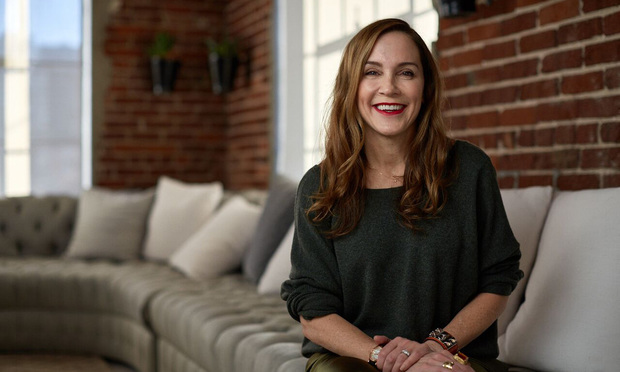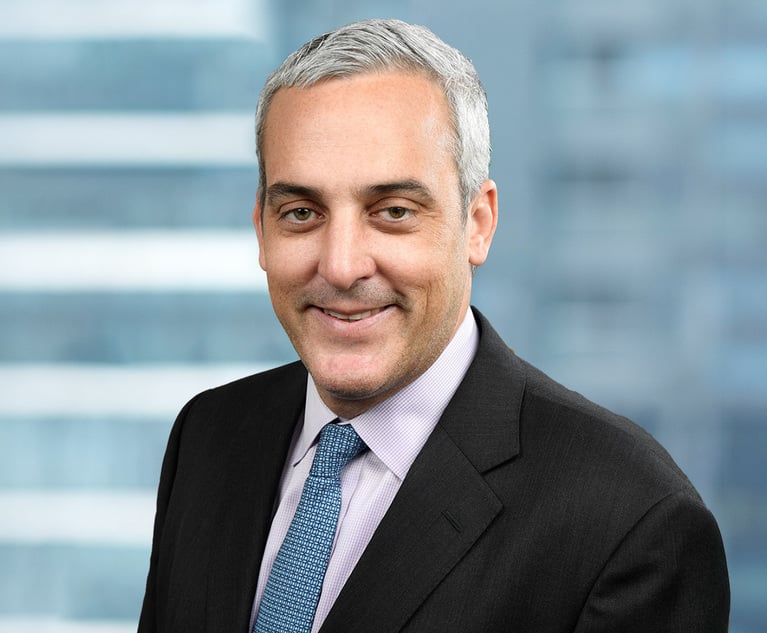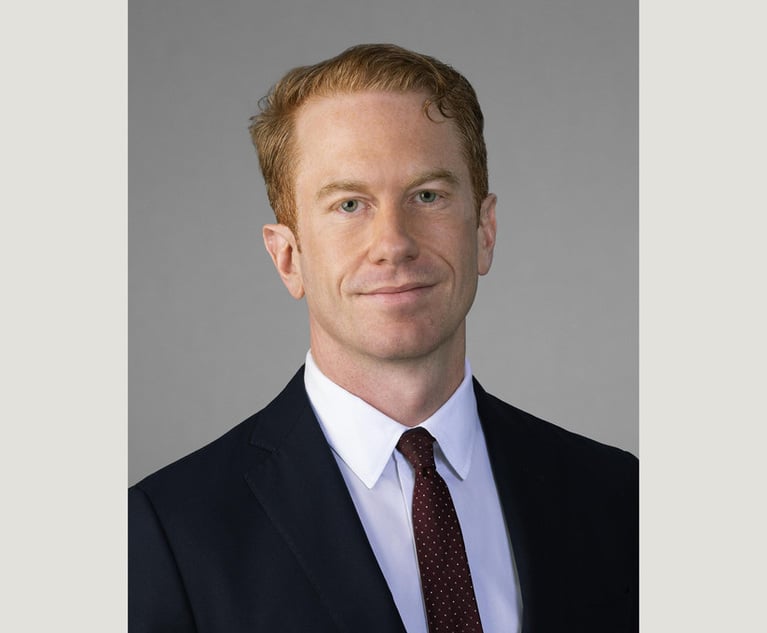Beyond a Payout: What to Make of Axiom's Plans to Go Public
The company's investors aren't the only ones waiting to find out what an IPO will mean for the legal services market.
February 21, 2019 at 03:59 PM
4 minute read
 Elena Donio, Axiom CEO (Courtesy photo).
Elena Donio, Axiom CEO (Courtesy photo).
If Axiom Global Inc. completes its plan to become a publicly traded company, it would mean one thing for certain: The legal staffing company's longtime investors will finally get a payout. Beyond that, industry experts said competition among alternative legal services providers would remain largely unchanged by adding a publicly traded peer.
With Axiom declining to comment other than confirming its long-awaited IPO plans, legal industry watchers were left to speculate about what the company's decision to split into three businesses said about the market for those individual services: legal staffing, contract management and enterprise managed services.
The staffing business is what the company hopes to list publicly—in a deal that would likely provide an exit for investors who have been with Axiom since as early as 2005, as well as capital to pursue faster-paced growth.
The longer-term status of the other two businesses, contract management platform Knowable and managed services platform Axiom Managed Solutions, remains unknown, but sources said they appeared ripe for private investments.
The explanation for the split may also be prove straightforward: Wall Street investors are likely to be more receptive to a single, simple-to-explain business—providing contract lawyers for corporate America—than to a conglomerate whose growth relies on lawyers changing their purchasing habits, industry watchers said.
“The Street likes easy-to-understand, easy-to-model businesses,” said Kenneth Grady, an adjunct professor and research fellow at Michigan State University College of Law and former CEO of SeyfarthLean Consulting. “So if you are the current owners [of Axiom], splitting up means you have a pure-play: the Axiom staffing business.”
That business is what Axiom is best known for in the legal market, and the company now has more than 2,000 employees and made $300 million in revenue last year. The company has been led by CEO Elena Donio since 2016.
Axiom “has done a good job of building a brand that signals specialized, well-credentialed, well-vetted talent,” said Bill Henderson, professor of law at Indiana University Maurer School of Law. “Reliably finding the right people with very low variability in quality is a very good operating business.”
Axiom was a pioneer of that staffing model in the legal industry. The company received its first outside funding round in 2000, raising $5.4 million, and made its first annual profit in 2003. That year, it earned $300,000 in profits on revenue of $4.4 million, according to a Forbes article.
The company has had three funding rounds since that initial venture capital jolt. In 2005, Axiom received $7 million in capital from Benchmark Capital and JPMorgan Partners. By spring 2008, the company had 200 lawyers and $55 million in revenue. At the time, the company received an $8 million equity capital investment in a deal that a Harvard Law School case study valued the company at $200 million. And in 2013, a series D funding round brought in $28 million, according to Crunchbase.
The company's fundraising success is one reason Liam Brown, chairman of Axiom competitor Elevate Services, said a potential IPO would not “massively change very much” in the market.
“Axiom were always well funded, and they were the leader in the [legal staffing] space,” Brown said. “And with this capital, exiting investors will get their money. They will continue to have some money to grow their [staffing] business, but they will not be in the managed services or technology space.”
Brown said some competitors—himself included—would “breathe a bit of a sigh of relief” that Axiom's management, after an IPO, will be focused more strictly on the legal staffing business rather than providing a more well-rounded offering to legal departments. But that may have been a decision Axiom had to make in order to go public, something its investors have been contemplating since at least 2012.
That's when Axiom investor Mike Jung said in a Harvard Law School case study, “The story that we can tell to the public markets is real.”
Still, in the same publication, Mark Harris, the company's founder and executive chairman, acknowledged there are drawbacks to being a public company, including “constant” earnings pressure and cultural change.
“We are mindful of the fact that a public offering, even if it comes about, would be simply a mile marker, not an endpoint,” Harris said in the case study.
This content has been archived. It is available through our partners, LexisNexis® and Bloomberg Law.
To view this content, please continue to their sites.
Not a Lexis Subscriber?
Subscribe Now
Not a Bloomberg Law Subscriber?
Subscribe Now
NOT FOR REPRINT
© 2025 ALM Global, LLC, All Rights Reserved. Request academic re-use from www.copyright.com. All other uses, submit a request to [email protected]. For more information visit Asset & Logo Licensing.
You Might Like
View All

What Happens When Lateral Partners’ Guaranteed Compensation Ends?

Latham Adds Former Treasury Department Lawyer for Cross-Border Deal Guidance
2 minute read
Wachtell Partner Leaves to Chair Latham's Liability Management Practice
2 minute readTrending Stories
- 1Lawyers' Reenactment Footage Leads to $1.5M Settlement
- 2People in the News—Feb. 4, 2025—McGuireWoods, Barley Snyder
- 3Eighth Circuit Determines No Standing for Website User Concerned With Privacy Who Challenged Session-Replay Technology
- 4Superior Court Re-examines Death of a Party Pending a Divorce Action
- 5Chicago Law Requiring Women, Minority Ownership Stake in Casinos Is Unconstitutional, New Suit Claims
Who Got The Work
J. Brugh Lower of Gibbons has entered an appearance for industrial equipment supplier Devco Corporation in a pending trademark infringement lawsuit. The suit, accusing the defendant of selling knock-off Graco products, was filed Dec. 18 in New Jersey District Court by Rivkin Radler on behalf of Graco Inc. and Graco Minnesota. The case, assigned to U.S. District Judge Zahid N. Quraishi, is 3:24-cv-11294, Graco Inc. et al v. Devco Corporation.
Who Got The Work
Rebecca Maller-Stein and Kent A. Yalowitz of Arnold & Porter Kaye Scholer have entered their appearances for Hanaco Venture Capital and its executives, Lior Prosor and David Frankel, in a pending securities lawsuit. The action, filed on Dec. 24 in New York Southern District Court by Zell, Aron & Co. on behalf of Goldeneye Advisors, accuses the defendants of negligently and fraudulently managing the plaintiff's $1 million investment. The case, assigned to U.S. District Judge Vernon S. Broderick, is 1:24-cv-09918, Goldeneye Advisors, LLC v. Hanaco Venture Capital, Ltd. et al.
Who Got The Work
Attorneys from A&O Shearman has stepped in as defense counsel for Toronto-Dominion Bank and other defendants in a pending securities class action. The suit, filed Dec. 11 in New York Southern District Court by Bleichmar Fonti & Auld, accuses the defendants of concealing the bank's 'pervasive' deficiencies in regards to its compliance with the Bank Secrecy Act and the quality of its anti-money laundering controls. The case, assigned to U.S. District Judge Arun Subramanian, is 1:24-cv-09445, Gonzalez v. The Toronto-Dominion Bank et al.
Who Got The Work
Crown Castle International, a Pennsylvania company providing shared communications infrastructure, has turned to Luke D. Wolf of Gordon Rees Scully Mansukhani to fend off a pending breach-of-contract lawsuit. The court action, filed Nov. 25 in Michigan Eastern District Court by Hooper Hathaway PC on behalf of The Town Residences LLC, accuses Crown Castle of failing to transfer approximately $30,000 in utility payments from T-Mobile in breach of a roof-top lease and assignment agreement. The case, assigned to U.S. District Judge Susan K. Declercq, is 2:24-cv-13131, The Town Residences LLC v. T-Mobile US, Inc. et al.
Who Got The Work
Wilfred P. Coronato and Daniel M. Schwartz of McCarter & English have stepped in as defense counsel to Electrolux Home Products Inc. in a pending product liability lawsuit. The court action, filed Nov. 26 in New York Eastern District Court by Poulos Lopiccolo PC and Nagel Rice LLP on behalf of David Stern, alleges that the defendant's refrigerators’ drawers and shelving repeatedly break and fall apart within months after purchase. The case, assigned to U.S. District Judge Joan M. Azrack, is 2:24-cv-08204, Stern v. Electrolux Home Products, Inc.
Featured Firms
Law Offices of Gary Martin Hays & Associates, P.C.
(470) 294-1674
Law Offices of Mark E. Salomone
(857) 444-6468
Smith & Hassler
(713) 739-1250










